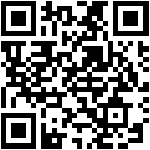Bilingual or multilingual nurses bring great value and unique skills to their work setting. Imagine, as a patient, landing in the hospital with a medical emergency when you don’t speak English—and how difficult it is to communicate with the medical team. That’s a typical experience for more people than you think. That’s especially true in New York where we are one of the most linguistically diverse urban centers in the world with more than 200 languages spoken. Nearly half of New Yorkers speak another language at home besides English, according to the NYC Department of City Planning.
With their language skills, bilingual nurses have a special ability to care for patients, especially those who speak Chinese or Spanish. The largest group of non-native speakers in New York speaks Chinese (Mandarin and Cantonese), followed by Spanish, Yiddish, and Haitian. Nurses who speak these languages—or any others—are valuable links between the patient, their families, and the medical team.
For the patient’s ability to heal, clear communication is key for them to understand procedures, consent forms, and what they should do at home to reduce the risk of medical complications. Complications can happen even for an English speaker who understands how to care for themselves at home. A non-English speaker may face more risk if they aren’t able to understand the at-home procedures they should follow.
Not only can bilingual nurses reduce communication gaps between the patient and the doctor, they can also serve as a kind of cultural attaché as needed. A patient raised in another culture, either in their country of origin or within a family culture in the US, may have different attitudes, beliefs, and understandings about medical care or even how many family members should be present in a medical setting.
A nurse with the patient’s cultural background can help the medical team understand a patient’s particular culture, so the team is able to provide more culturally sensitive care—or at least understand a patient’s belief system. For the patient, the nurse can explain medical terminology and care to the patient, as well as relay information from the doctor. Bilingual nurses can mean the difference between a positive outcome and a negative experience.
Hospitals and other healthcare facilities are working to improve care for all patients, and that includes hiring bilingual nurses. If you speak another language and have thought about entering a nursing program, St. Paul’s School of Nursing—with campuses in Queens and Staten Island—offers an Associate Degree in Nursing (ADN). Visit the Nursing page on our website, or call (855) 822-3018 to speak to one of our admissions representatives or to schedule a campus tour.


